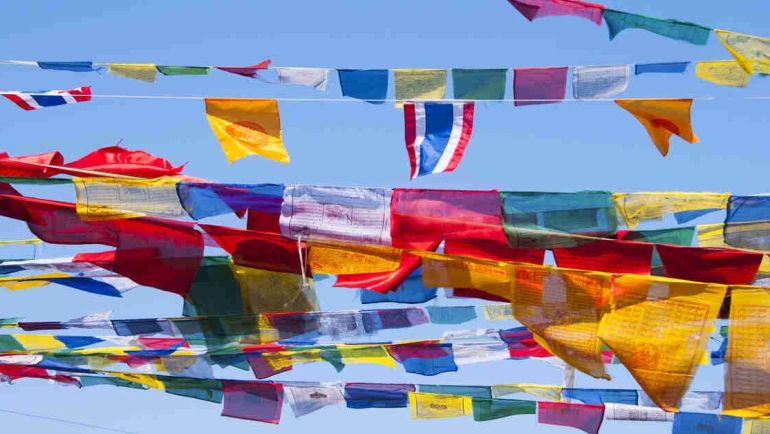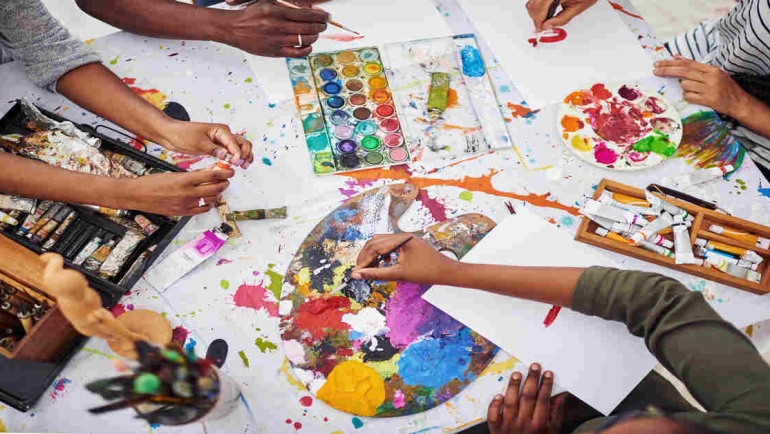Festival Culture November 12, 2025

How Can You Immerse Yourself in Vibrant Festival Cultures?
There is something magical about festivals, their colors, the sounds, the food, the happiness that is in the air and the feeling of belonging that they leave. The festivals have been the central part of human culture where people come together to admire art, music, tradition, and spirituality. It could be the vibrant samba dances of the Rio Carnival in Brazil or the peaceful lantern-lit evenings of Yi Peng Festival in Thailand, each of these events narrates the story of the people and their lifestyle. This Festival Life Guide is going to show you a tour of the world of festivals and how they have influenced the culture and how you can enjoy all the experience.
1. The Meaning and Magic of Festival Life
In order to know the allure of life in festivals, it is noteworthy to discuss what festivals symbolize. They are statements of identity- occasions when communities are brought alive by dancing, art and ritual. Festival Life Guide is well written and has been developed to explore the way these events bring together generations and keep on traditions but adopt innovation, a core theme when global festival traditions are explored. Through festivals, cultural exchange can be enjoyed as locals and visitors of the destination exchange stories, music, and meals that unite them despite their differences and celebrate shared values.
Entertainment is not only a matter of festival life. It is an expression of the desire of humankind to be joyful, creative, and share the memory. Since the beginning of the harvest festival years ago, through the successful Coachella music fests today, the culture of celebration has always been eternal. All Festival Life Guides underline that such events are a way to take care of feelings, improve connections between communities, and get a respite after the hard work.
2. The Global Language of Festivals
Festivals are a universal tongue of happiness, no matter where you are located on the globe. They inform us on what people treasure, how they show their appreciation and what they desire. Cultural researchers have estimated that in the entire world, over 10,000 major festivals are held every year, in various forms, such as religious festivals, cultural and art festivals.
In this Festival Life Guide, we can categorize festivals into three main types:
- Cultural and Heritage Festivals – These preserve traditions, such as Diwali in India or Hanami in Japan.
- Music and Art Festivals – Like Glastonbury in England or Burning Man in Nevada, these showcase human creativity.
- Food and Seasonal Festivals – Oktoberfest in Germany or the Cherry Blossom Festival in Washington D.C. remind us of nature’s bounty and local flavors.
Each category contributes to cultural diversity and global tourism, offering immersive experiences that change the way people view the world.
3. The Social and Economic Impact of Festivals
The overall Festival Life Guide also looks at the economic boost and the societal conditioning of festivals. Festivals, in addition to the happiness they cause, create employment, encourage business, and tourism. Such cities as Rio de Janeiro or New Orleans are so dependent on festival tourism and it brings millions of dollars yearly.
Festivals promote community and inclusion socially. They offer the stage to local artists, they also promote volunteerism and also bring cultural awareness. In educational contexts, festivals offer lessons of empathy, collaboration, and appreciation of diversity lessons that are much greater than the actual event.
4. Preparing for Festival Life: Practical Tips
To truly enjoy the experience, preparation is key. This Festival Life Guide offers a few practical steps to help you make the most of any celebration:
- Research Before You Go: Learn the history, customs, and etiquette of the festival.
- Plan Early: Popular festivals like Holi or Tomorrowland sell out quickly.
- Stay Hydrated and Energized: Long days of dancing, walking, and excitement can be draining.
- Be Respectful: Always honor the local culture and traditions, especially during religious ceremonies.
- Capture Memories, Not Just Photos: Engage with the people, stories, and spirit of the event.
Whether you’re backpacking through Europe’s summer festivals or attending a local harvest fair, these tips ensure that you experience the full richness of festival life.
5. The Educational Value of Festivals
An extremely informative Festival life Guide looks at the contribution of festivals to learning. To the teachers and children, festivals are on-the-job classes on history, sociology, and art. The latter reveal the way in which ancient traditions are getting adjusted to the contemporary world, how art can be used to show the identity of a community and how international trends can be used to influence local ones.
For example:
- Music festivals introduce cultural mixes and innovations to the audience.
- Art festivals, such as the Venice Biennale, bring about some discussion of society, politics and creativity.
- Religious holidays such as Ramadan or Easter teach spiritual principles of reflection, gratitude and unity.
Festivals studies are part of the cultural education programs in many schools and universities due to the enormous pedagogical significance. The feeling of festivals, being present during them, may enhance the interpretation of human interaction and creativity.
6. The Evolution of Festivals in the Modern Era
The life of any Festival would be incomplete without taking a look into the technology and globalization that have transformed festivals. Contemporary festivals cease to be defined in terms of local audiences. Millions of people around the globe can attend celebrations remotely with the help of livestreams, virtual reality, and social media.
In addition, sustainability is now a key theme. Green festivals are being created everywhere in the world, promoting recycling, renewable energy and carbon offset programs. Such events as Glastonbury have prohibited single-use plastics, whereas others have advanced zero-waste policies. This development indicates how the life of festivals is still evolving, combining the tradition with the contemporary awareness.
7. The Emotional Power of Festival Life
Festivals are not just entertaining, but they are healing, inspirational and connecting. Psychologists believe that the collective experience in festivals may enhance happiness and decrease stress. The unanimity of the rhythm of music, the common chants, and the bright images produce an emotional echo that remains a long time after the show concludes.
It is this emotional element that each Festival Life Guide is aimed at capturing and it is the intangible magic that causes people to travel across continents just to dance under the same sky. Festive life makes us remember that the joy is in every person and celebration is art.
8. Exploring Notable Festivals to Add to Your Bucket List
The following are some of the most popular festivals that can be considered the epitome of the festival life:
- Holi (India): The festival of colors, which values love and rebirth.
- Rio Carnival (Brazil): A spectacular show of samba, costumes and parades.
- Oktoberfest (Germany): This is the largest beer and food festival in the world.
- Burning Man (USA): Radical self-expression and creativity festival.
- La Tomatina (Spain): The most famous tomato-throwing event that brings innocent happiness and mayhem.
- Edinburgh Fringe (Scotland): The largest arts festival in the world with thousands of performances in it.
- Songkran (Thailand): The Thai New Year festival water festival that is a symbol of cleansing and renewal.
All these events bring out a different cultural beat, which supports the thought that the diversity in the world is a thing to be celebrated and not merely viewed.
9. The Future of Festival Life
The future of festivals will be a mixture of physical and virtual presence as we continue further into a digitally connected world. The next level of the festival experience involves members being in the same virtual space in Tokyo and Paris and Nairobi, even when you are at a concert. Digital etiquette, immersive technologies and sustainable travel tips will be some of the things that the Festival Life Guide of tomorrow will have.
The cultural institutions are already cooperating in the world to save the traditional festivals with a new twist. It will be a balance between the heritage and the modernity that will determine the way in which the future generations will celebrate.
Frequently Asked Questions (FAQs)
1: What is the best way to prepare for a large festival abroad?
The best advice this Festival Life Guide can offer is to plan early, secure tickets, accommodations, and transport in advance. Research the cultural etiquette and pack light but essential items like reusable bottles, sunscreen, and comfortable footwear.
2: Are festivals suitable for families and children?
Yes, many festivals such as Lantern Festivals or Harvest Fairs are family-friendly. Always check event guidelines, as some music festivals have age restrictions.
3: How can I experience festival life if I can’t travel internationally?
Virtual festivals and local cultural events offer great alternatives. Many global celebrations now livestream their parades and performances, allowing you to be part of the experience from home.
Final Thoughts
Festivals allow us to remember that we are all related even with our differences in terms of joy, rhythm, and creativity. Every event of celebrations, be it a local fair or an international carnival, narration of endurance, community and hope. This Festival Life Guide demonstrates that festival life is not only about the attendance of the events, it is also about the culture, promotion of creativity and the willingness to appreciate the common human experience.
Then, next time you hear those far-off bangs of the drums or watch the lanterns in the night sky, you will remember that that is the summons of the festival life asking you to take part in the most colorful classroom on the globe.



